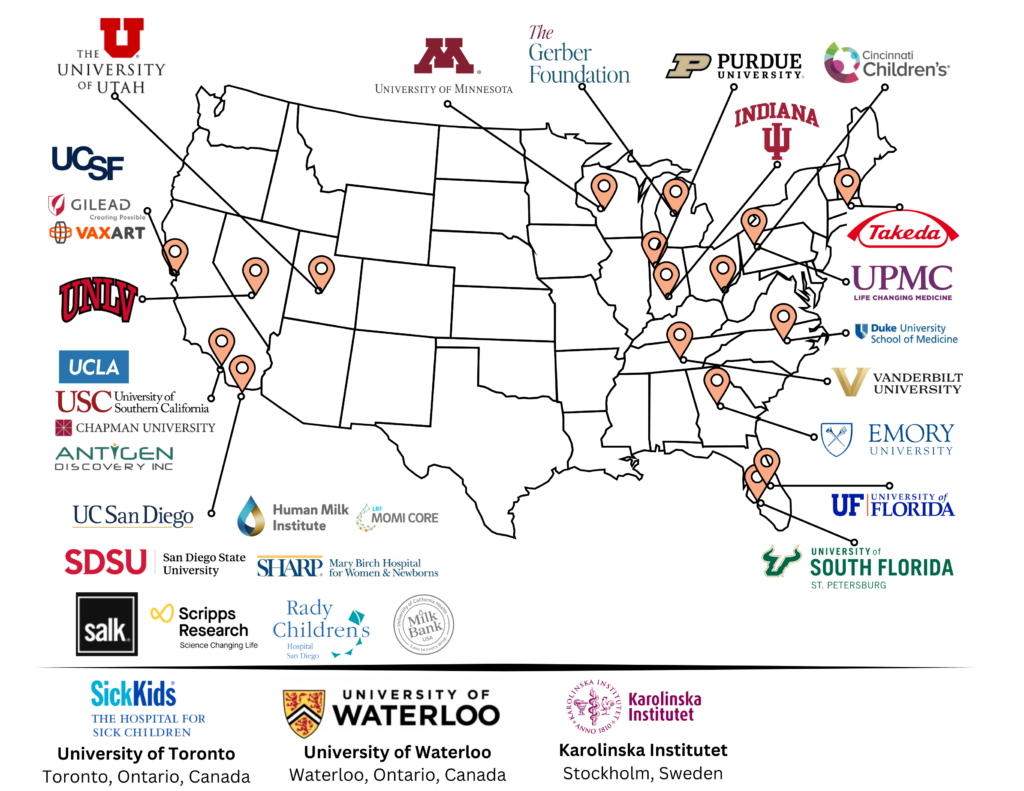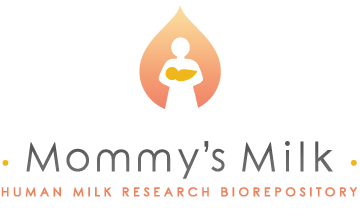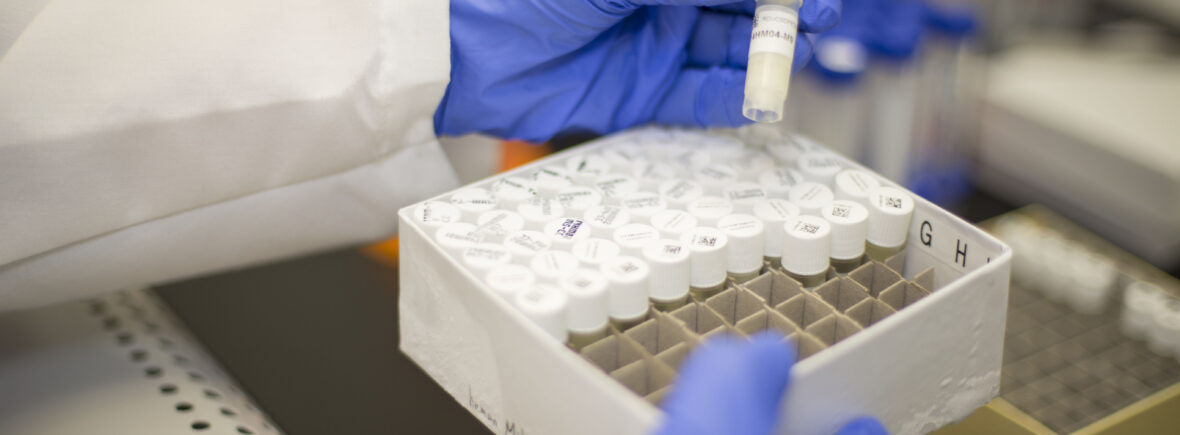Collaborators

DIRECTIONS
This form should be completed by the Principal Investigator (PI) responsible for overseeing the project and for directing the laboratory and personnel who will receive, use and process the requested specimens.
When submitting a written request for samples:
- A separate Mommy’s Milk Specimen Request Form must be submitted for each respective study.
- Please be specific about your requirements, including those for storing and handling samples from the time the specimens are collected until they are delivered to your lab (i.e., transport media, refrigeration status, etc.).
- Participant identity is confidential. Samples and accompanying clinical data are de-identified and participant identity will not be disclosed under any circumstances.
- Principal Investigators must obtain human subjects’ approval from the institution where the work will be performed followed by Mommy’s Milk Steering Committee approval in order to receive specimens from the Mommy’s Milk Human Milk Research Biorepository. Full or expedited approval, or exemption status for your project must be obtained from the Principal Investigator’s Institutional Review Board (IRB). A copy of the human subjects’ approval documentation should be attached to this form. Specimens/data will not be distributed until notice of your IRB’s action (approval or exemption) is received.
- When approval is obtained, a fully executed Material and/or Data Transfer Agreement (MTA) will need to be completed before specimens/data are distributed. The language in the MTA agreement is NOT to be altered.
- Periodic progress reports on the study utilizing these samples will be required until study completion, as well as acknowledgement of the Biorepository in all related publications and presentations.
By completing the following application, you agree to the terms above.
For questions, please contact: kdutcher@ucsd.edu
Table 1. Data collection for the Human Milk Biorepository: timing and method of collection
| Data Collection Method | Instrument/Question | |
| Breast milk Sample Donation Interview | ||
| Demographics | Race/ethnicity Heritage/ Lineage Country of birth Primary language in household Educational achievement Pre-tax household income Mother of baby job title Current height of mother Current weight of mother | |
| Pregnancy History | Gravidity Parity Number of spontaneous abortions Number of pregnancy terminations | |
| Breast Feeding Profile | Are you exclusively breast feeding Quantity and duration of typical breast feeding session Any supplementation with formula Quantity of formula supplementation Any supplementation with solid food Age of solid food supplementation Food groups introduced to date | |
| Breast Feeding History | Have you breastfed any other children Duration of past breastfeeding Have you ever used a breast pump Familiarity with a breast pump | |
| Medical History | Family medical history Personal medical history Exercise and Frequency Total hours of sleep in 24 hour period | |
| Offspring Information | Gestational age at delivery Birth weight, length, OFC 1 minute and 5 minute Apgar scores Mode of delivery Current weight, height. OFC Abnormalities in pediatric exams | |
| Exposure Information (last 14 days)1 | Indication, route, dose/unit, frequency, start/stop dates, time last taken | |
| Adverse Reactions in Offspring | Pre-specified reactions to exposures2 | |
| Questionaire | ||
| Food Frequency Questionnaire | Based upon a 30 day recall | |
| Psychological Health | Edinburgh Postpartum Depression Scale Perceived Stress Scale-10 item State-Trait Anxiety Inventory PACE | |
| Post-sample collection assesments3 questionnaire | ||
| Offspring neurodevelopment | MacArthur Bates Communicative Development Inventories Ages and Stages Questionnaire Infant-Toddler Social and Emotional Assessment Modified Checklist for Autism in Toddler Mullen Scales for Early Learning |
1 Participants are specifically queried on vitamins/supplements, prescription medications, over the counter medications, birth control, caffeine, alcohol, cigarettes, secondhand smoke, recreational drugs, and illness/fever.
2 Participants are queried specifically about drowsiness, sedation, poor feeding, rash, bruising/bleeding, constipation, diarrhea, bloody stools, fever, low body temperature, restlessness, irritability, poor sleep, high-pitched crying, abnormal movements, abnormal skin color, reflux, eczema, dehydration, or poor weight gain.
3 Neurodevelopmental testing is conducted at child ages of 6 months, 12-16 months, 24-28 months, and 30-36 months. The child is eligible to participate in testing that occurs post-sample collection. If the child misses an assessment, they are still eligible to participate in the next age appropriate assessment.

